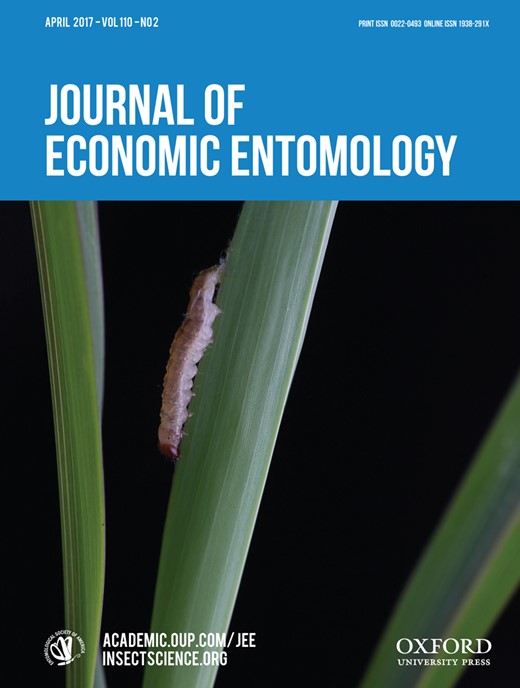-
Views
-
Cite
Cite
Yuan-Chen Zhang, Hai-Xia Lei, Ning-Hui Miao, Xiang-Dong Liu, Comparative Transcriptional Analysis of the Host-Specialized Aphids Aphis gossypii (Hemiptera: Aphididae), Journal of Economic Entomology, Volume 110, Issue 2, April 2017, Pages 702–710, https://doi.org/10.1093/jee/tox029
Close - Share Icon Share
Abstract
Host specialization is an ubiquitous character in aphid populations. Many polyphagous aphid populations usually consist of several subpopulations that have strong fidelity to a specific host or a subset of host range. Host specialization is an evolutional result of food habit of insects. However, genetic basis and molecular mechanism of host specialization are still unclear. In this study, we presented a comparative analysis on global gene expression profiles of three lineages of Aphis gossypii Glover: cotton-specialized (CO), cucurbit-specialized (CU), and CU reared on cowpea (CU-cowpea), using RNA-Seq method. More than 157 million clean reads and 38,398 different unigenes were generated from transcriptomes of these three aphid lineages. The 1,106 down- and 2,835 up-regulated genes were found between CO and CU, and 812 down- and 14,492 up-regulated genes between CU-cowpea and CU. Differentially expressed genes between CO and CU were enriched in sugar metabolism, immune system process, pathogen infection or symbiosis, and salivary secretion. Genes associated with cytochrome P450, major facilitator superfamily, and salivary effector were differentially expressed between CO and CU, which might be involved in determining host specialization. UDP-glycosyltransferases genes were sensitive to host shift. Carboxylesterases and digestion-related protease genes were related to both the host specialization and host shift of aphids. Expression levels of 22 out of 24 genes of CO and CU measured by RT-qPCR method were as similar as the results from RNA-seq method. This study provides a road map for future study on molecular mechanism of host specialization in aphids.





